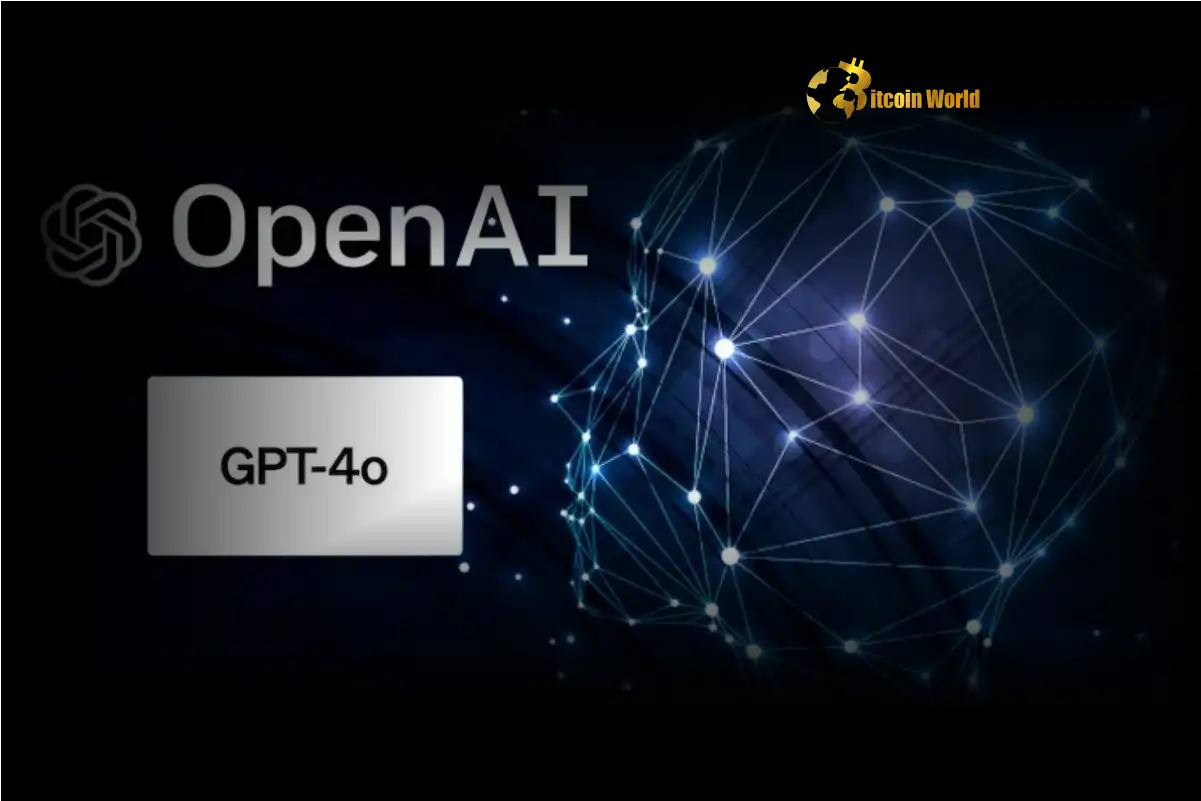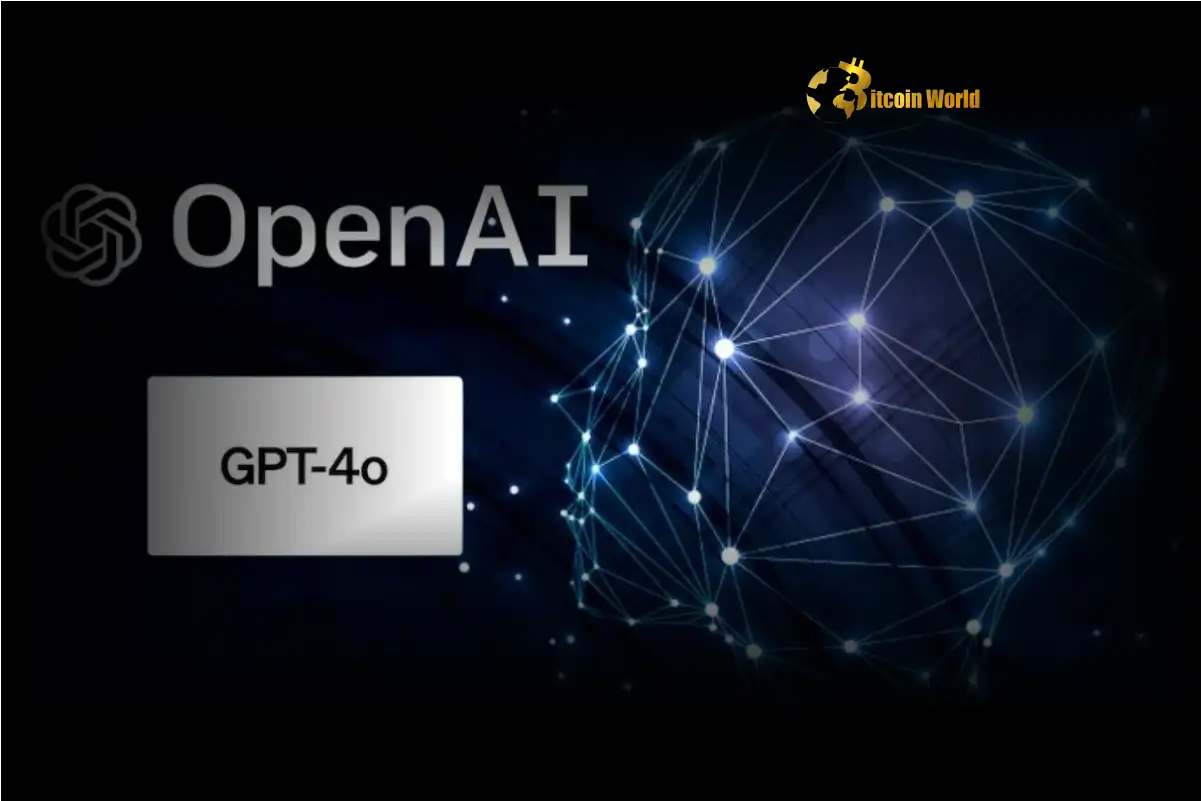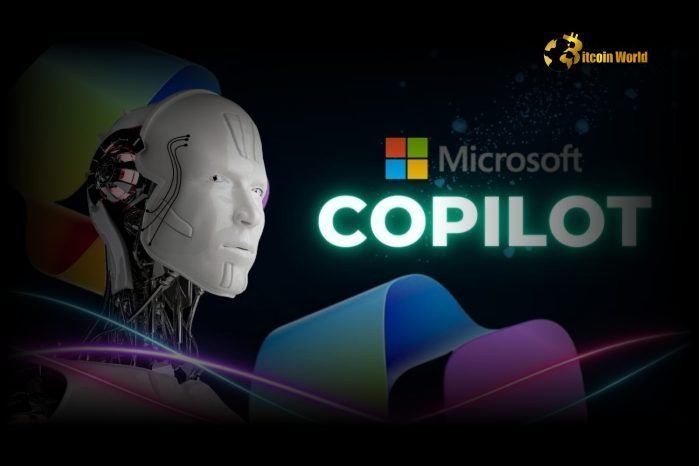Is OpenAI, the giant behind ChatGPT, embroiled in another data sourcing controversy? A new report from the AI Disclosures Project is making waves with a serious accusation: OpenAI may have trained its advanced GPT-4o model using copyrighted, paywalled books from O’Reilly Media without permission. This revelation intensifies the ongoing debate about AI training data ethics and the boundaries of copyright in the age of artificial intelligence. For crypto enthusiasts and tech-savvy individuals following the AI revolution, this news raises critical questions about data transparency and the future of content creation.
Unpacking the Copyright Infringement Claim Against OpenAI
The core of the accusation revolves around the source of data used to train sophisticated AI models like GPT-4o. Think of AI models as incredibly complex learning machines. They digest massive amounts of information – text, images, code – to identify patterns and generate outputs based on prompts. When you ask ChatGPT to write a poem or create an image, it’s drawing upon this vast knowledge base to produce its response. It’s not creating something entirely new, but rather intelligently remixing and extrapolating from what it has learned.
While many AI labs, including OpenAI, are exploring AI-generated synthetic data to augment their training datasets, relying solely on synthetic data presents challenges. Performance can degrade, and the models may lose touch with the nuances of real-world data. This is where the controversy around AI training data sourcing becomes critical.
The AI Disclosures Project, spearheaded by Tim O’Reilly and Ilan Strauss, suggests that OpenAI’s latest model, GPT-4o, exhibits a strong understanding of content from paywalled O’Reilly books. This is particularly concerning because O’Reilly Media, a prominent publisher of technical and business books, does not have a licensing agreement with OpenAI.
Key findings from the AI Disclosures Project paper:
- GPT-4o’s Superior Recognition: The research indicates that GPT-4o demonstrates a significantly higher recognition of paywalled O’Reilly book content compared to OpenAI’s earlier model, GPT-3.5 Turbo.
- DE-COP Method: The researchers employed a technique called DE-COP, a “membership inference attack,” to assess whether AI models have prior knowledge of specific texts from their training data. This method tests if a model can distinguish between original human-written text and AI-paraphrased versions.
- Extensive Testing: Over 13,000 paragraph excerpts from 34 O’Reilly books were used to probe the knowledge of GPT-4o, GPT-3.5 Turbo, and other OpenAI models.
- Paywalled Content Recognition: The results strongly suggest that GPT-4o “recognized” a far greater amount of paywalled O’Reilly book content than its predecessors.
GPT-4o and the Mystery of Paywalled Books: What Does It Mean for Copyright?
The paper highlights a stark contrast between GPT-4o and older models like GPT-3.5 Turbo. While GPT-3.5 Turbo showed more familiarity with publicly accessible O’Reilly book samples, GPT-4o excelled in recognizing content behind paywalls. This raises serious questions about how OpenAI sourced its AI training data for its most advanced model.
According to the research, “GPT-4o [likely] recognizes, and so has prior knowledge of, many non-public O’Reilly books published prior to its training cutoff date.”
However, the researchers acknowledge that this isn’t definitive proof of copyright infringement. They concede that their method isn’t foolproof and that OpenAI could have indirectly accessed the book excerpts through user interactions with ChatGPT – users might have copied and pasted snippets of paywalled content into the platform. Furthermore, the study didn’t analyze OpenAI’s newest models, leaving open the possibility that data sourcing practices may have evolved.
Why Does AI Training Data Matter in the Crypto and Tech World?
For those in the cryptocurrency and broader tech space, the implications of this copyright infringement claim are significant:
- Data Ethics and Transparency: The crypto world champions decentralization and transparency. Questions around AI data sourcing mirror these concerns. Where AI models get their data and how ethically it’s obtained are crucial for building trustworthy AI systems.
- Impact on Content Creators: If AI models are trained on copyrighted material without proper licensing, it undermines the rights of content creators – authors, artists, musicians, and more. This could stifle creativity and innovation in the long run.
- Legal Battles and Regulatory Scrutiny: OpenAI is already facing multiple lawsuits regarding its data practices. This new report will likely add fuel to the fire, potentially leading to stricter regulations around AI training data and copyright.
- Future of AI Development: The search for high-quality AI training data is intensifying. AI companies are exploring various avenues, including licensing deals, synthetic data generation, and even hiring domain experts to inject knowledge directly into AI systems. The resolution of the copyright infringement debate will significantly shape the future landscape of AI development.
OpenAI’s Stance and the Broader Industry Trend
OpenAI has publicly advocated for more flexible rules regarding the use of copyrighted data for AI training. They argue that access to a wide range of data, including copyrighted material, is essential for developing powerful and beneficial AI models. The company does have licensing agreements with some publishers and offers opt-out mechanisms for copyright holders, though these are often criticized as insufficient.
The trend of AI companies seeking higher-quality AI training data is undeniable. OpenAI has even hired journalists to refine its models’ output, and the industry is seeing a rise in AI firms recruiting experts across various fields to infuse specialized knowledge into AI systems. While OpenAI does pay for some training data through licensing deals, the O’Reilly paper underscores the ongoing tension between AI development and copyright law.
As OpenAI navigates multiple lawsuits and increasing scrutiny, this new report from the AI Disclosures Project adds another layer of complexity to the copyright infringement debate. OpenAI did not respond to requests for comment, leaving the allegations unanswered for now.
To learn more about the latest AI trends, explore our articles on key developments shaping AI models and AI ethics.






